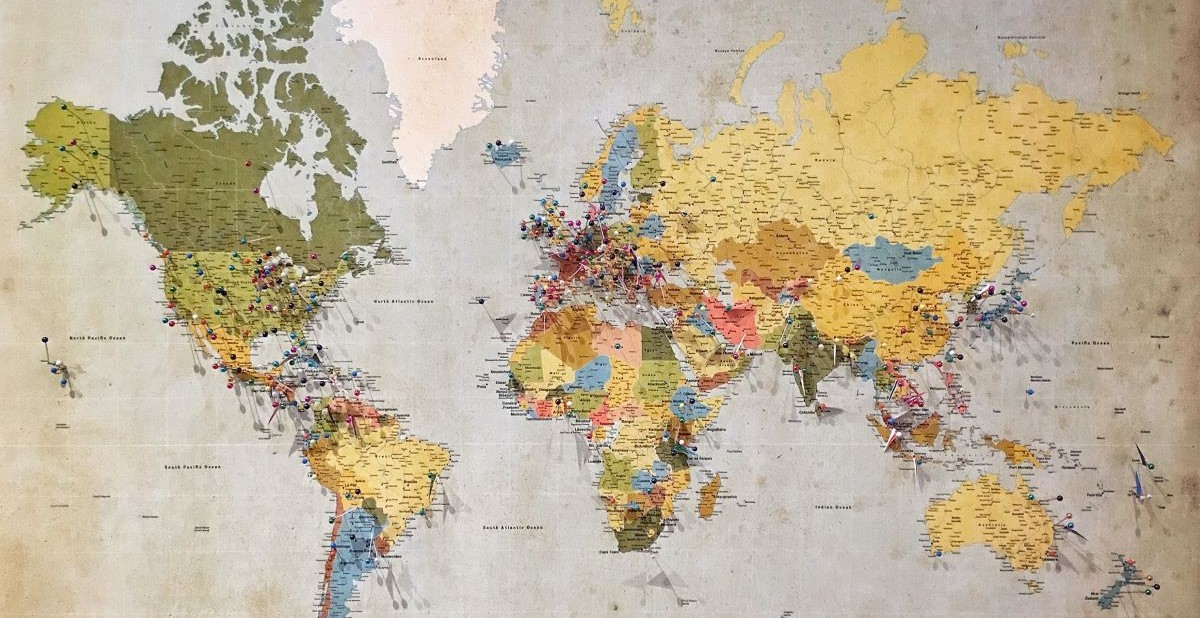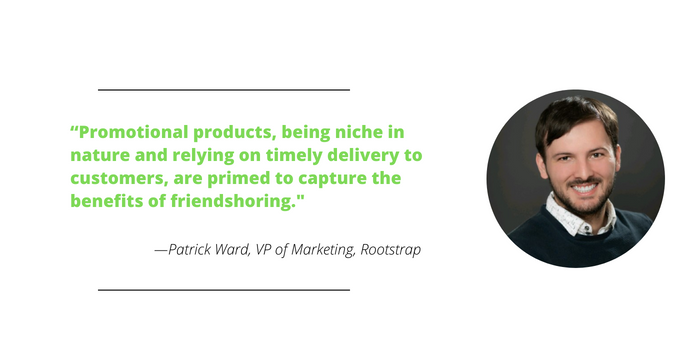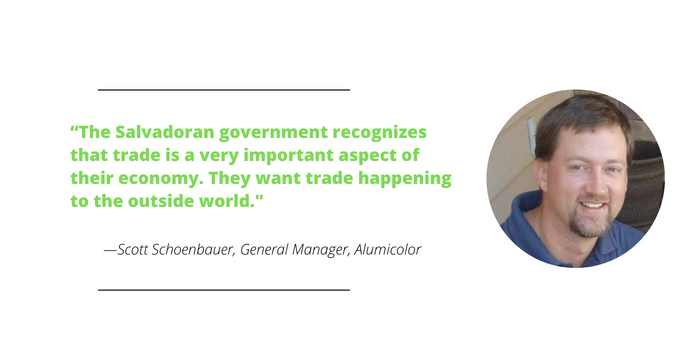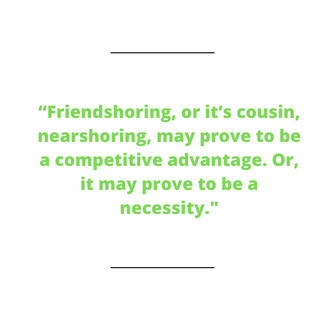Is 'Friendshoring' The Future For Promo?

Friendshoring has already begun.
Whether promo is keeping up with the latest jargon used to describe the process of moving manufacturing away from politically tumultuous nations like China and into democratically elected countries or nations that the United States has a positive relationship with, the industry does not want to be left behind.
“It is worth noting that despite the large trade volume with China, it is only the U.S.’s third biggest trading partner,” says Patrick Ward, vice president of marketing at Rootstrap, a custom software development consultancy. “The first two? A perfect example of friendshoring: Canada and Mexico.”
Indeed, one of promo’s biggest stories of 2023 so far has been HPG’s acquisition of Evans Manufacturing, and Chris Anderson, HPG’s CEO, has stated that a significant motivation behind the move was Evans’ manufacturing operation in Mexico.
An overreliance on China for manufacturing is not specifically a promo problem. Pick up three items in your office or house, and you’re likely to see the words “Made in China.” It’s the result of decades of international business practices. But the trade tariffs placed on China during the Trump administration followed by the COVID-19 pandemic created supply chain nightmares that even the most creative companies couldn’t expedite.
Those conditions may well prove to be less of a bump in the road and more of a warning for the future. To call the U.S.’s current relationship with China “unpredictable” would be putting it diplomatically.
Friendshoring, or its cousin, nearshoring, may prove to be a competitive advantage. Or, it may prove to be a necessity.

What Is Friendshoring?
The clearest definition of friendshoring is the practice of relocating supply chains to countries where the risk of disruption from political chaos is low.
- Tariffs, COVID-19 policies and political differences have created added risks to U.S. companies manufacturing in China.
- The war in Ukraine has reminded industries of how easily reliance on trade partnerships can be used as political leverage in conflicts between nations.
Since 2020, it has become commonplace to expect the unexpected when it comes to global affairs and conditions.
Ward argues that while cheap labor has long made manufacturing in places like China enticing, favorable conditions for trade in neighboring countries have been established since the 1994 NAFTA agreement, “which continues to consolidate the benefits of for U.S. companies working with close allies, not only due to ease of doing business but also reduced transportation and logistical hurdles by working with close allies that are economically tied to the U.S.’s success.”
- In other words, in uncertain times, rely on your friends, or in this case, the friends of the U.S.
The promo industry is not particularly unique in how this situation applies to it. The allure of places like China will continue to be cheap labor, while the potential headaches are uncertain. Perhaps the past few years have been a perfect storm of unfavorable global conditions. But “political chaos” will remain a risk in countries the U.S. does not actively consider an ally.
“Promotional products, being niche in nature and relying on timely delivery to customers, are primed to capture the benefits of friendshoring,” Ward says.

Small And Mid-Size Companies Can Lead The Way
In previous decades, large companies had the advantage in decisions like friendshoring, because of the capital they are able to access to make big changes. But, according to Ward, things have changed in today’s contemporary market.
“The advantage has switched to small to mid-sized companies with more niche products and services along with a lower dependency on manufacturing output,” Ward says. “They are well-poised to capture the benefits of friendshoring due to the innate flexibility of their business models and greater ability to pivot to opportunity.”
A great case study of this is Alumicolor, a mid-sized supplier based out of Colorado that has manufactured out of the Central American country of El Salvador since 1981.
- Alumicolor, which specializes in aluminum rulers among other products, found that the factory that makes aluminum for the El Salvadorian construction industry could also manufacture its products.
- El Salvador’s close proximity to Colorado has reaped benefits for Alumicolor for decades.
“The reason we find it to be a huge advantage is that we can get the product so much faster,” says Scott Schoenbauer, general manager at Alumicolor.
- Turnaround times are two or three weeks for Alumicolor orders.
- The company airfreights all orders because of its affordability at such a short distance.
- It remains cost-effective to even airfreight small orders of aluminum without having to pass international freighting costs on to customers.
Although there was a Civil War in El Salvador in the 1980s, the supply chain has been smooth for Alumicolor since manufacturing out of the country. The United States sees El Salvador as an important and willing trade partner.
“The Salvadoran government recognizes that trade is a very important aspect of their economy,” Schoenbauer says. “They want to have trade happening to the outside world.”
- Additionally, the factory pays workers more on average than Chinese factories, while labor costs are still cheaper than domestic manufacturing.
“It’s not like a sweatshop or anything like that,” Schoenbauer says. “We go through an annual audit with [the retailer] Michael’s. It’s like a social accountability audit that they do with all their vendors, and we pass with flying colors. I feel good about that. Whereas in China, you just don’t know.”
This time one year ago, companies were struggling with logistic nightmares due to supply chain disruption.
- Alumicolor used the fact that it wasn’t affected by what was going on in China or elsewhere as a selling point.
- The company’s three-week turnaround was maintained throughout global supply chain disruptions.
In fact, Schoenbauer says that one of the company’s top competitors reached out because they needed a specific product in a timeframe that would be unattainable without going through Alumicolor Salvadoran factory. Based on that competitive advantage, Alumicolor did business with the competitor and created an amicable partnership.

The Logical Flaw Of Friendshoring
The problem with buzzworthy terms is that they tend to be defined in non-static moments.
As the New York Times states, “Who, exactly, are your friends? In the last couple years, President Biden went from calling Saudi Arabia a ‘pariah’ to fist-bumping Crown Prince Mohammed bin Salman to vowing that the kingdom would face ‘consequences’ for teaming up with Russia.”
- Diplomatic relations are fickle.
- The U.S. is always looking to improve trade relations with countries.
- On the other hand, one consequential decision can drastically affect the U.S.’s view of a particular nation.
Geopolitical relations change in a matter of years. A company planning to set up manufacturing in a new country is likely hoping to establish an operation that will span 30 years, not three. There is inherent risk in the decision.
That said, not all risks are equal. It only takes a reasonable amount of research to figure out which countries are more likely to remain favorable trade partners with the U.S. Alumicolor’s long-ago decision to manufacture out of El Salvador might have saved its business last year, which thrived instead of scrambling along with much of the industry.

